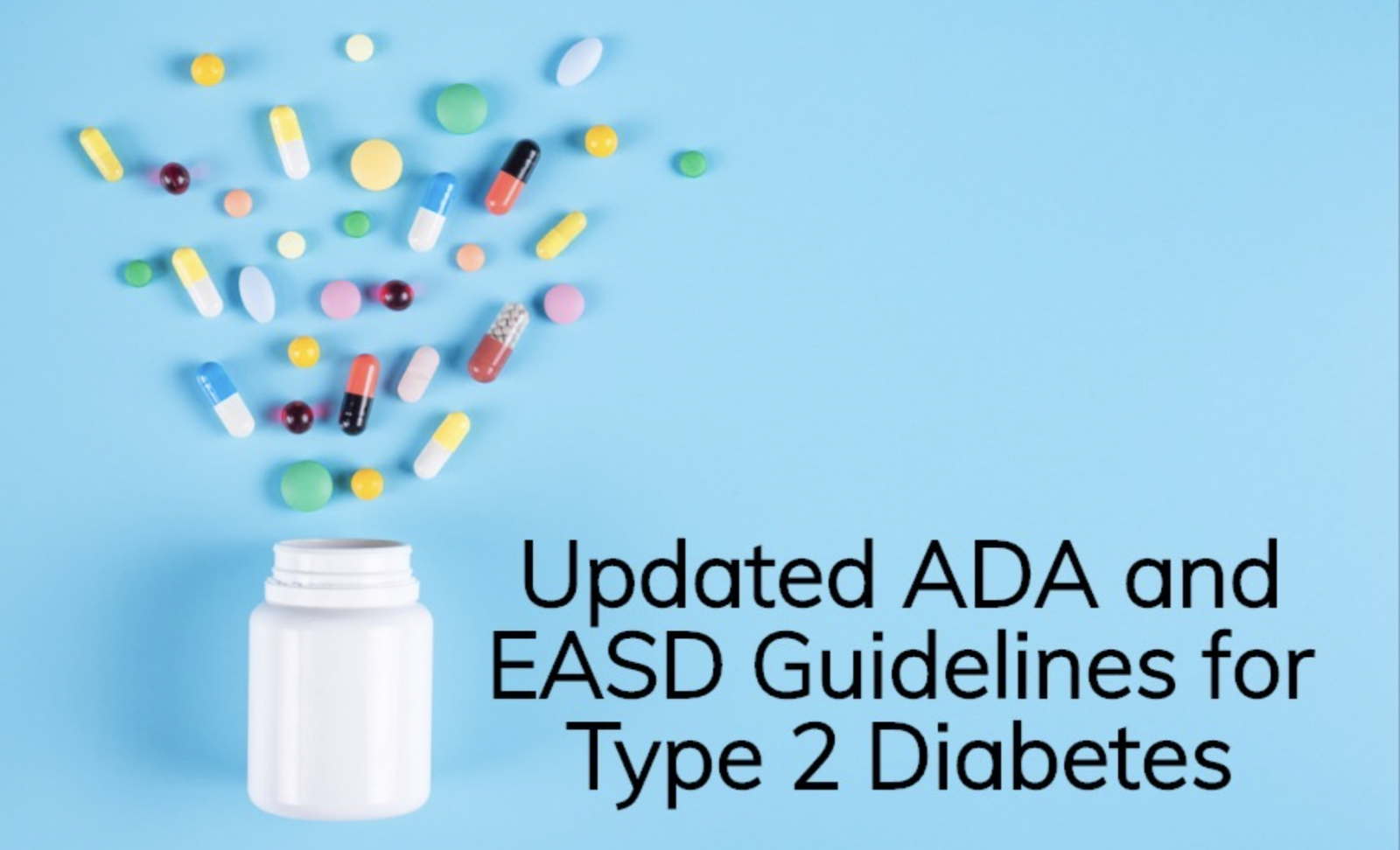New Guidelines for Type 2 Diabetes Care – Emphasis on Heart and Kidney Health
By Jimmy McDermott
 By Jimmy McDermott
By Jimmy McDermott
New guidelines from ADA and EASD focus on GLP-1 agonists and SGLT-2 inhibitors to improve heart and kidney health
The American Diabetes Association (ADA) and European Association for the Study of Diabetes (EASD) released a new update to their 2018 recommendations on the management of high blood sugar (hyperglycemia) in type 2 diabetes. The updates include:
1. Treat high-risk individuals (regardless of A1C level) with GLP-1 agonists and SGLT-2 inhibitors to:
-
Reduce this risk of heart attack, stroke, and other major adverse cardiovascular events (MACE);
-
Reduce the risk of hospitalization for heart failure;
-
Reduce the risk of heart-related death; and,
-
Slow the progression of chronic kidney disease (CKD).
What does this mean? The approximately 30% of people with type 2 diabetes who have heart disease or kidney problems, no matter what their A1C is, should go on either an SGLT-2 or GLP-1. As our advisor Dr. John Buse says, it is about a “compelling indication” and not really about “first line” or “second line,” as is often the terminology used in discussing drugs for type 2 diabetes. If you have heart disease or kidney complications you are not alone, many people with diabetes do. If your doctor has not brought up approaches that include additional therapies with you, we recommend you ask them if they have read this article and what their thoughts are!
2. Recommend GLP-1 agonists for people with type 2 who don’t have heart disease but are at high-risk for heart disease.
3. Recommend SGLT-2 inhibitors for people with type 2 who have heart failure and/or kidney disease.
Metformin, in combination with lifestyle changes, is still the first recommended therapy, but as Dr. Buse says, taking GLP-1 or an SGLT-2 is about a “compelling indication” rather than the “order”. The world of diabetes is changing in that it is not only about “glycemic” health, as in A1C or time in range, but also heart and kidney health. Now that there are ways to treat these conditions!
The ADA and EASD’s recommendations are based on 2019 data from large trials that showed the heart and kidney health benefits of GLP-1 agonists and SGLT-2 inhibitors. You can find more information about several of these studies below.
The full ADA Standards of Care were updated with these recommendations and are posted here. These updates are posted in the 9th chapter. Please share this article with your healthcare team to make sure they are also informed!
Recent Studies Showing the Heart and Kidney Health Benefits of SGLT-2 inhibitors and GLP-1 agonists
SGLT-2 inhibitors and heart health:
DAPA-HF examined the heart health benefits of SGLT-2 inhibitor Farxiga (spelled Forxiga in Europe) in people with and without type 2 diabetes. The results showed that Farxiga reduced heart-related death or worsening heart failure by 26% compared to placebo (a “nothing” pill). Notably, the heart benefits were the same in people with diabetes and without diabetes. Farxiga is the first SGLT-2 inhibitor to show use as a treatment for heart disease.
The DECLARE trial results showed that Farxiga, an SGLT-2 inhibitor, can prevent hospitalization for heart failure. Data presented at the American Heart Association conference compared Farxiga to placebo and found that Farxiga reduced the risk of heart-related death and hospitalization for heart failure by 17%. This benefit was mainly driven by a 27% reduction in heart failure hospitalizations. The benefit was seen both in people with existing heart disease and those with risk factors for heart disease, such as high blood pressure, high cholesterol or smoking.
SGLT-2 inhibitors and kidney health:
The CREDENCE trial that showed that people taking the SGLT-2 inhibitor Invokana had 30% lower risk of end-stage kidney disease, of worsening kidney function, and of kidney or heart-related death. The trial compared Invokana to a placebo in people with type 2 diabetes and with chronic kidney disease (CKD). Because of the exceedingly positive data, the trial was stopped early – it was deemed unethical to keep giving people the placebo, given the clear kidney health benefit. Invokana became the first diabetes medicine approved to treat kidney disease and to reduce the risk of hospitalization for heart failure in people with type 2 diabetes and kidney disease.
GLP-1 agonists and heart health:
The REWIND trial examined the heart effects of Trulicity, a once-weekly injectable GLP-1 agonist for people with type 2 diabetes. It revealed a 12% reduced risk of a combination of non-fatal stroke, non-fatal heart attack, and heart-related death, compared to a placebo. This benefit was the same among study participants who had existing heart disease and those who only had heart disease risk factors. REWIND offers the first evidence that GLP-1 agonists may prevent strokes and heart attacks in people without diagnosed heart disease.
PIONEER 6 showed that Rybelsus – a pill version of Ozempic approved in the US in 2019 – reduced risk of heart-related death by 51%, reduced A1C by 1.0% (from a starting A1C of 8.2%), and reduced weight by about 9 lbs (or 4.2 kg, from a starting weight of 200 lbs, or 91 kg).







